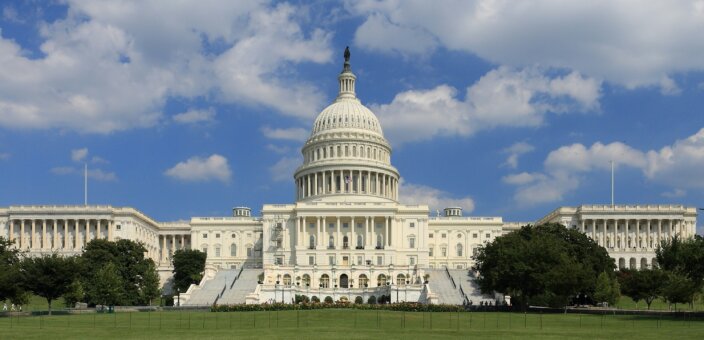At midnight on Wednesday, October 1, the US government shut down when members of Congress were unable to reach an agreement about continued funding. Government shutdowns aren’t exactly rare—there have been 14 others since 1980, with the last one starting in December 2018 and lasting into the following month. But they can introduce some uncertainty, both in everyday life and in financial markets. We’re here to help you think through the latter.
We turned to Wealthfront’s Investment Advisory Board for their perspective on what the current shutdown means and how investors should (or should not!) react. This board includes industry experts and highly respected academics in the field. Here’s what they had to say:
“Government shutdowns (especially if they continue for a considerable period) can temporarily restrain economic activity and certainly can rattle investors. But the timeless wisdom for investors is to ignore the noise and volatility that shutdowns, recession scares, and the like generate and avoid detrimental and impulsive actions. Staying the course and sticking with a well-considered investment program is always the best advice.” — Burt Malkiel, PhD, Chief Investment Officer and author of A Random Walk Down Wall Street
“Unless the shutdown drags on for months—which is highly unlikely and unprecedented in U.S. history—there’s little reason for individual investors who are interested in accumulating wealth for the long run to worry or make changes to their portfolios. Economic fundamentals remain unaffected: Unsurprisingly, on the first day of the shutdown, the S&P 500® closed above 6,700 for the first time ever—hardly a sign of panic. Real concerns for long-term investors would only emerge if the shutdown extended over several months or if a significant portion of federal employees were laid off during the shutdown, to the extent of severely disrupting key government functions. Both scenarios have never materialized in US history, and, at this stage, they both appear very unlikely.” — Francesco D’Acunto, PhD, Georgetown professor
“First, there is no doubt that the shutdown is an event that is almost guaranteed to increase uncertainty. The VIX (‘fear’) index has moved slightly upward but not nearly the amount that would signal the huge amount of uncertainty that was associated with some past events. As I write this, it is at 16.25, but this is not particularly high. In April, the VIX spiked over 60 when tariffs were announced. With the benefit of hindsight, some look at that as an overreaction. Uncertainty may increase, but at this time there are no sure signs to indicate that it will. If it was generally believed that uncertainty is quite likely to appreciably increase above the level it is at now, the VIX would be higher than what it is.
For some people, there is always the temptation to try to outsmart the market. Is the market underreacting to the shutdown and failing to account for all the negative implications it will have? If you are confident it is, then in your opinion, stock and other prices are ‘too high’ and you will be tempted to sell anything you think is overpriced. Conversely, you may at some point come to the opinion that the market is overreacting and prices have been driven down to be ‘too low.’ As is well documented, changing your portfolio on the belief that you know more than the collective wisdom of all those in the market is a fairly reliable way to decrease your long-term returns.” — Paul Pfleiderer, PhD, Stanford professor
“While the business world will continue to do its great work of increasing economic value, there will also be many ‘opportunities’ for investors to get distracted or even concerned, and most of these will get lots of attention from the daily press and various websites and blogs. Wise investors will stay focused on the long term.” — Charles D. Ellis, PhD, author of Winning the Loser’s Game
“The government shutdown is an inconvenience to me and likely to you. I’ll be flying out of the San Francisco airport on Monday and plan to arrive there earlier than usual, expecting longer TSA lines. As investors, however, we have little to worry about. Indeed, what we have experienced in the last few days is testimony to the efficiency of investment markets. All the information about the likelihood of a shutdown was known as we neared it, reflected in securities’ prices, and these prices reflect events that extend to many months and years. The shutdown is not one of them. Indeed, I write my words on the afternoon of Wednesday, October 1, and know that the US stock market closed at a gain today, and so did international markets. Still, I worry about my Monday flight.” — Meir Statman, PhD, author and Glenn Klimek Professor of Finance at Santa Clara University
The key takeaway? While government shutdowns can make investors nervous, these events are unlikely to have a long-term impact on your portfolio. We hope this information helps you navigate the current shutdown, however long it lasts.
Disclosure
The information contained in this communication is provided for general informational purposes only, and should not be construed as investment or tax advice. Nothing in this communication should be construed as a solicitation or offer, or recommendation, to buy or sell any security.
Indices are not available for direct investment; therefore, their performance does not reflect the expenses associated with the management of an actual portfolio.
Investment management and advisory services are provided by Wealthfront Advisers LLC, an SEC-registered investment adviser. Brokerage products are provided by Wealthfront Brokerage LLC, a Member of FINRA/SIPC. Investing involves risk, including loss of principal. Past performance is not a guarantee of future results.



